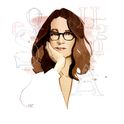What is the first news event you can recall?
The JFK assassination in November 1963. I had just turned nine. I was watching Take Your Pick! with Michael Miles, and there was a newsflash in part one saying he had been shot, and a second newsflash in part two saying he was dead. My parents were moderately anti-American and hysterically anti-Catholic, but even so were still very upset.
What is your most embarrassing moment as a writer?
I had an awkward moment on the radio once. I took a Denver station’s call in bed, and heard the DJ say, “After the news I have one of my absolute favourite authors, Lincoln Child… coming up in a minute.” I had 60 seconds to figure out how not to embarrass either the DJ or myself. As it happened, I knew Lincoln Child and I knew his books... so for three minutes on Denver radio, I simply impersonated him.
If you could spend a day at one moment in history, what would that be?
The question seems to imply a safe, swift and certain return, so I would choose something really extreme in its intensity—maybe Stalingrad in December 1942.
What is your favourite quotation?
Franz Kafka: “The meaning of life is that it ends.” Appropriately dark and sardonic, and therefore consoling in some moods, but equally I take it to mean this ain’t a dress rehearsal.
Are things getting better or worse?
There’s no conclusion other than getting worse. I grew up in a stable postwar democracy, with full employment, moderate politics, a functioning cradle-to-grave welfare state, dread diseases conquered, no bombs falling on my house, no 4am knocks on the door, and a superb free education from the age of five until I no longer wanted it. No generation in history ever had all that before, and later generations are seeing it taken away, little by little, and squalidly.
If you were given £1m to spend on other people, what would you spend it on and why?
Random acts of kindness: you see an old lady struggling with her wheelchair, you push her to the store and buy her an electric model. You rent a suite at the Savoy and invite the homeless in for a soak in the tub. And so on. Whatever increases the sum of human happiness. Might take a week. You could buy a copy of The Big Issue with the last couple of quid.
What do you most regret?
A cowardly hiring decision. When I was at Granada TV, the responsibility to choose on-screen announcers fell to me. One audition tape opened on a very tight shot of a woman’s face. She looked great on the screen and her voice was lovely. The camera pulled back a little. Still great. More. She was sitting in a car, looking out the window. Weird, but OK. She was still great. In fact she could be the one. Then the camera pulled back more. She was a Thalidomide victim. I foresaw minor difficulties operating her mic with no arms, but mostly I foresaw objections from management. I put her in the discard pile. I should have fought for her. I have never forgiven myself. Then it got worse. I hired a woman from Trinidad, previously a flight attendant. She went on to present a small local programme. One Christmas she went home to Trinidad to stay with her mother and sister. Local robbers heard rumours of the rich TV star from Britain, broke in and killed all three.
What would people be surprised to know about you?
I like ironing. I hate Mozart. I have never read Jane Austen.
What have you changed your mind about?
Practically everything. Some things because of time-bought perspective—the best play I ever saw, the best guitarist of the 1960s—and others because of new information—Neanderthal society, the content of the universe. The last 50 years have seen a tsunami of research on everything, and anyone who hasn’t changed their mind isn’t paying attention.
What’s the perfect book to read in a crisis?
Probably a thriller, as the genre trades on the reader’s desire to make order out of chaos. Probably one of mine. Probably my latest hardcover.
Can you teach someone to be a writer?
No. You can pass on hints and tips and industry-insider shortcuts, but the only way to learn is to read for 40 years. Plus, the only way a text can have a beating heart is for it to be the organic work of one mind. I think writing courses and MA degrees are procrastination techniques. Don’t get it right, get it written.
Lee Child’s latest Jack Reacher book “Blue Moon” is out now from Bantam. He is a judge for this year’s Booker Prize
The JFK assassination in November 1963. I had just turned nine. I was watching Take Your Pick! with Michael Miles, and there was a newsflash in part one saying he had been shot, and a second newsflash in part two saying he was dead. My parents were moderately anti-American and hysterically anti-Catholic, but even so were still very upset.
What is your most embarrassing moment as a writer?
I had an awkward moment on the radio once. I took a Denver station’s call in bed, and heard the DJ say, “After the news I have one of my absolute favourite authors, Lincoln Child… coming up in a minute.” I had 60 seconds to figure out how not to embarrass either the DJ or myself. As it happened, I knew Lincoln Child and I knew his books... so for three minutes on Denver radio, I simply impersonated him.
If you could spend a day at one moment in history, what would that be?
The question seems to imply a safe, swift and certain return, so I would choose something really extreme in its intensity—maybe Stalingrad in December 1942.
What is your favourite quotation?
Franz Kafka: “The meaning of life is that it ends.” Appropriately dark and sardonic, and therefore consoling in some moods, but equally I take it to mean this ain’t a dress rehearsal.
Are things getting better or worse?
There’s no conclusion other than getting worse. I grew up in a stable postwar democracy, with full employment, moderate politics, a functioning cradle-to-grave welfare state, dread diseases conquered, no bombs falling on my house, no 4am knocks on the door, and a superb free education from the age of five until I no longer wanted it. No generation in history ever had all that before, and later generations are seeing it taken away, little by little, and squalidly.
If you were given £1m to spend on other people, what would you spend it on and why?
Random acts of kindness: you see an old lady struggling with her wheelchair, you push her to the store and buy her an electric model. You rent a suite at the Savoy and invite the homeless in for a soak in the tub. And so on. Whatever increases the sum of human happiness. Might take a week. You could buy a copy of The Big Issue with the last couple of quid.
What do you most regret?
A cowardly hiring decision. When I was at Granada TV, the responsibility to choose on-screen announcers fell to me. One audition tape opened on a very tight shot of a woman’s face. She looked great on the screen and her voice was lovely. The camera pulled back a little. Still great. More. She was sitting in a car, looking out the window. Weird, but OK. She was still great. In fact she could be the one. Then the camera pulled back more. She was a Thalidomide victim. I foresaw minor difficulties operating her mic with no arms, but mostly I foresaw objections from management. I put her in the discard pile. I should have fought for her. I have never forgiven myself. Then it got worse. I hired a woman from Trinidad, previously a flight attendant. She went on to present a small local programme. One Christmas she went home to Trinidad to stay with her mother and sister. Local robbers heard rumours of the rich TV star from Britain, broke in and killed all three.
What would people be surprised to know about you?
I like ironing. I hate Mozart. I have never read Jane Austen.
What have you changed your mind about?
Practically everything. Some things because of time-bought perspective—the best play I ever saw, the best guitarist of the 1960s—and others because of new information—Neanderthal society, the content of the universe. The last 50 years have seen a tsunami of research on everything, and anyone who hasn’t changed their mind isn’t paying attention.
What’s the perfect book to read in a crisis?
Probably a thriller, as the genre trades on the reader’s desire to make order out of chaos. Probably one of mine. Probably my latest hardcover.
Can you teach someone to be a writer?
No. You can pass on hints and tips and industry-insider shortcuts, but the only way to learn is to read for 40 years. Plus, the only way a text can have a beating heart is for it to be the organic work of one mind. I think writing courses and MA degrees are procrastination techniques. Don’t get it right, get it written.
Lee Child’s latest Jack Reacher book “Blue Moon” is out now from Bantam. He is a judge for this year’s Booker Prize












